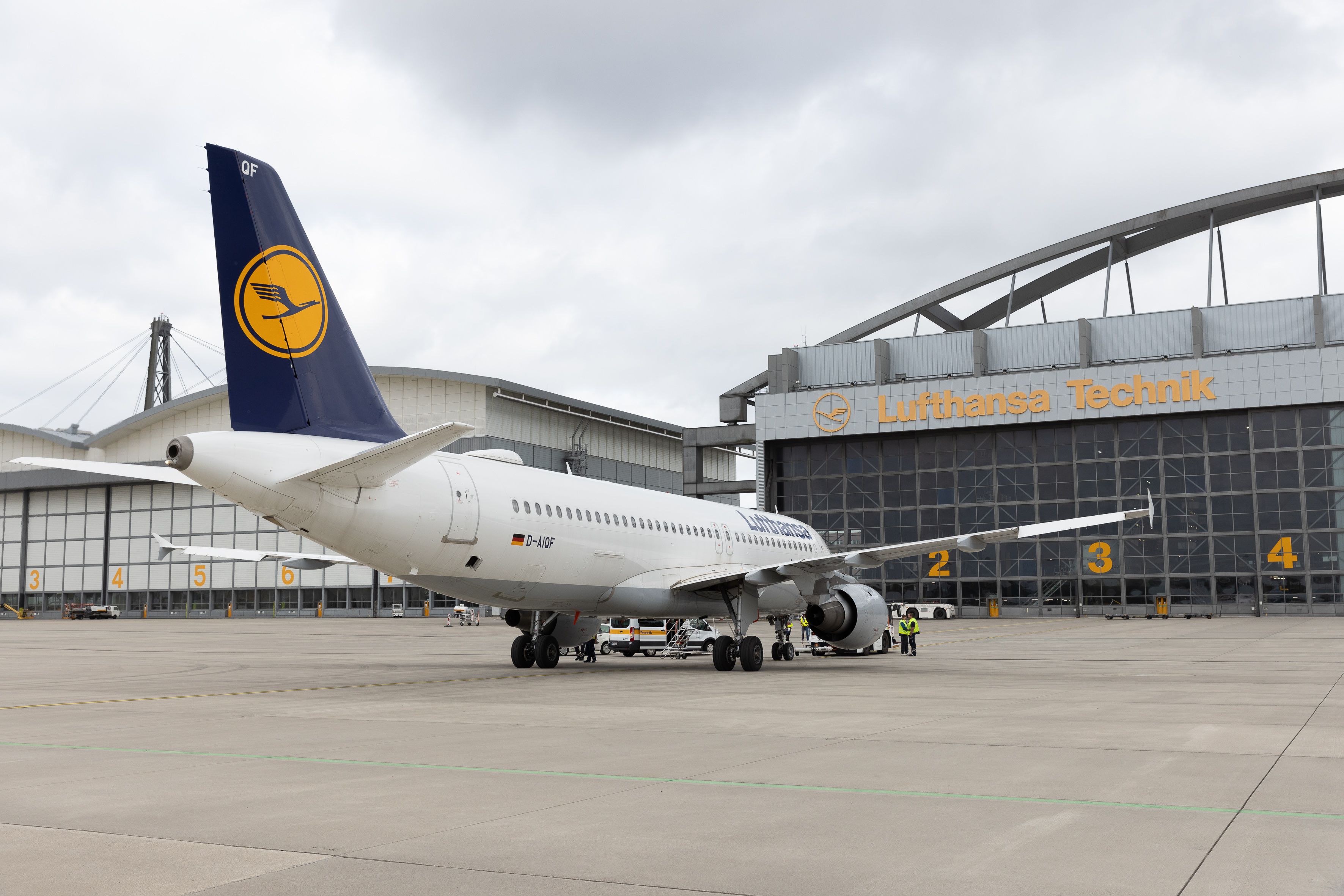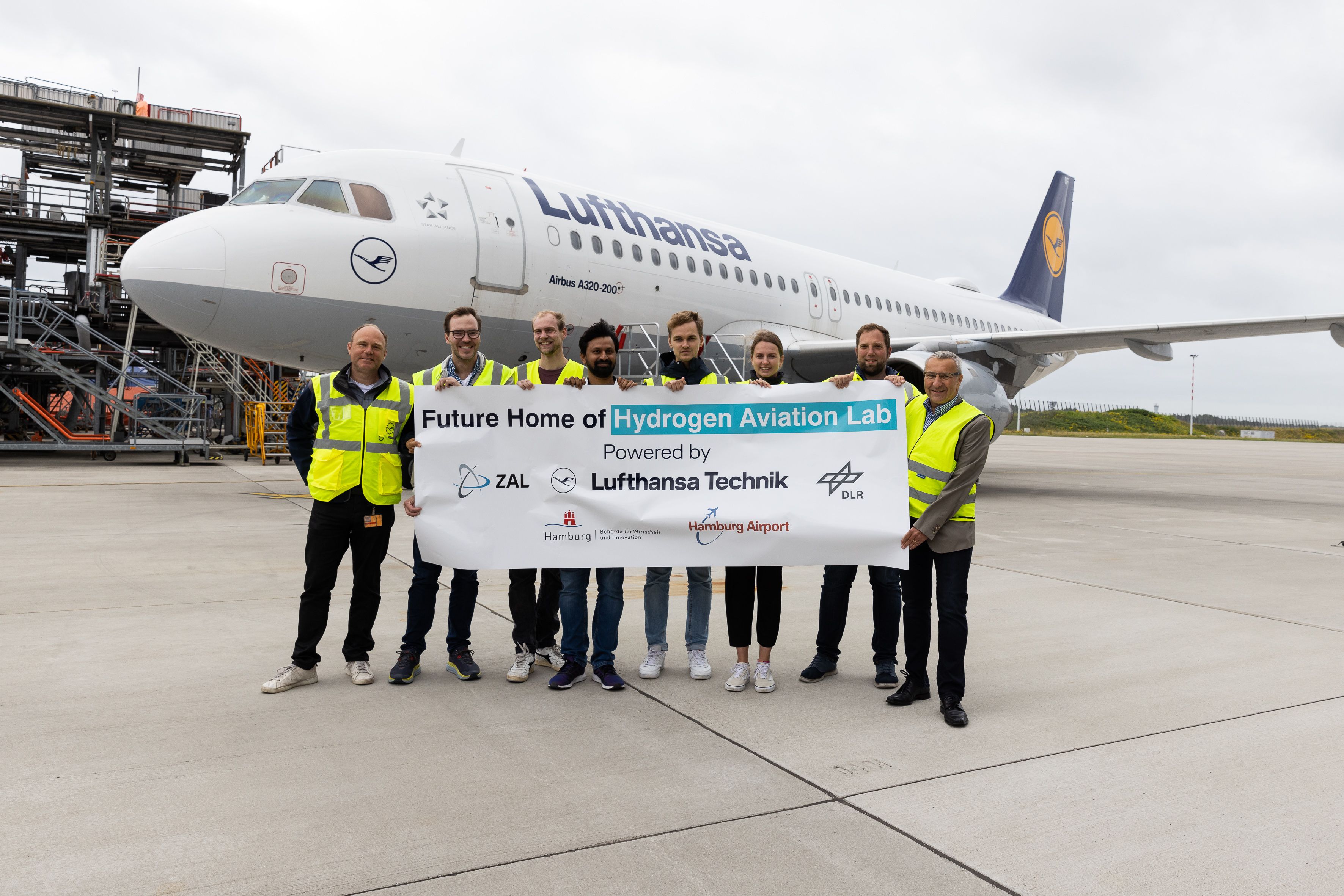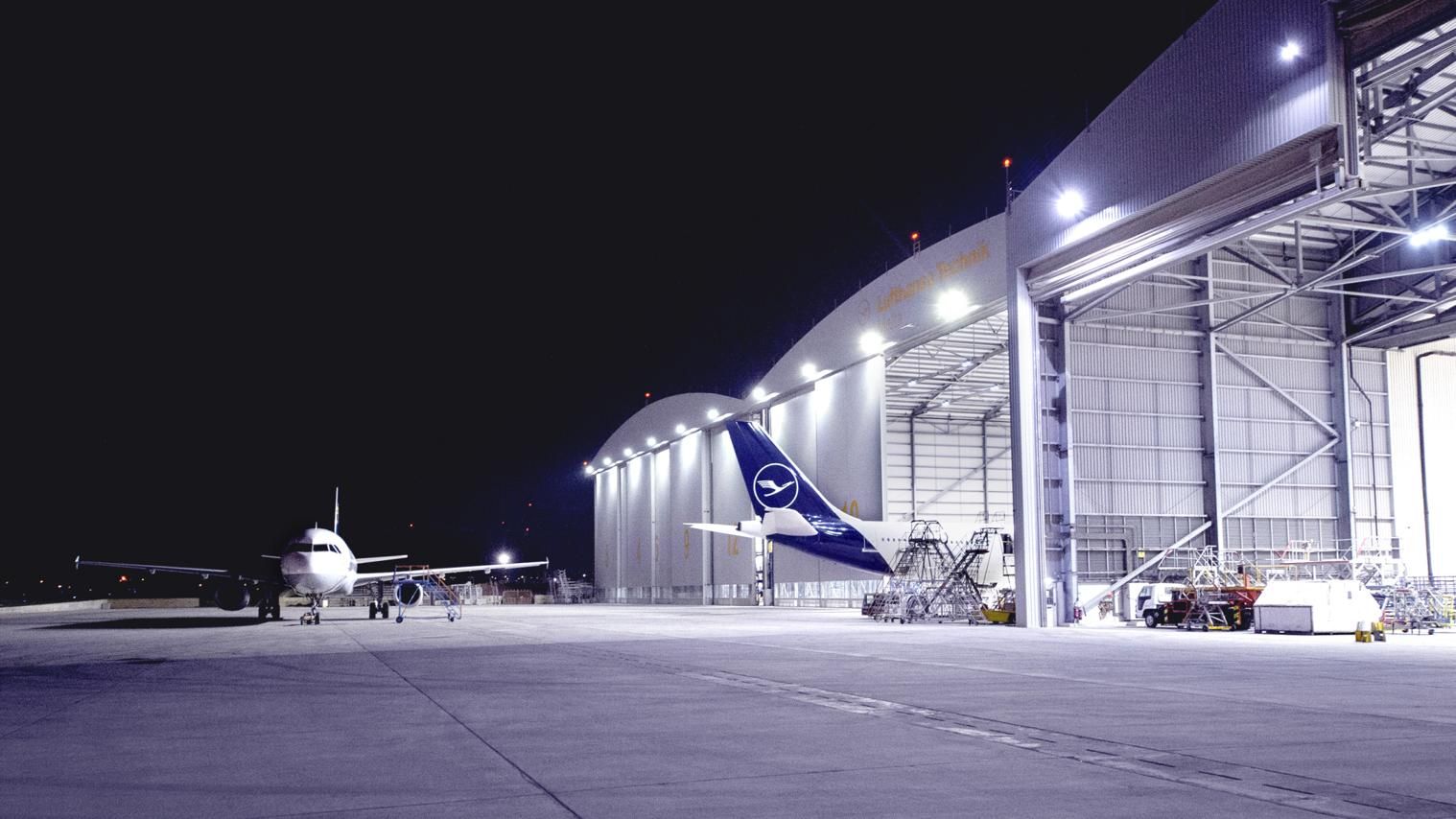The maintenance and repair arm of the Lufthansa Group has announced an exciting new second life for one of its Airbus A320s. The recently retired aircraft will be repurposed into a hydrogen aviation lab for research into sustainable aviation.
The aircraft, affectionately named “Halle (Saale),” will be based at Hamburg Airport, where Lufthansa Technik has its main base of operations.
A new life for Halle as a hydrogen testbed
The aircraft used for the research project initially entered service with the Lufthansa Group in the summer of 1991. It flew for the mainline Lufthansa fleet before transferring to the Germanwings from 2014 until 2017, according to data from ch-aviation.
The Airbus A320, registration D-AIQF, logged more than 76,000 flight hours and over 54,000 cycles before finally being retired in 2020 and sent to Hamburg Airport, where it will now find a new life in the service of science. There, the aircraft will be equipped with a liquid-hydrogen tank and fuel cell to serve as a testbed for research.
The modified aircraft will be home to a new Hydrogen Aviation Lab, designed to study the future of how maintenance, repair and overhaul, and ground-handling processes for future hydrogen-powered aircraft can be best undertaken.
The testing will initially take place on a relatively small scale. The newly installed fuel cell will power galley equipment as engineers seek to understand and develop the technology to expand it to a broader range of uses. Michael Eggenschwiler, CEO of Hamburg Airport, said of the collaboration:
"Climate-friendly flying with hydrogen technology is only possible if the infrastructure on the ground also fits perfectly. Close coordination is required here, and we as an airport are pleased to be able to contribute our know-how to this important project – from questions of storage and distribution to the refueling process on the apron.
At the airport, we also rely on hydrogen as the technology of the future for our ground transport. This project offers us the chance to identify and make the best possible use of synergy effects between gaseous hydrogen, such as that used for refueling our baggage tractors, and liquid hydrogen for aircraft refueling."
Discover more aviation news.
Hamburg as a hydrogen hub
The endeavor is a joint project between Lufthansa Technik, the German Aerospace Center, ZAL Center of Applied Aeronautical Research, and Hamburg Airport. The project is funded by the Free and Hanseatic City of Hamburg, already a significant hydrogen hub and developing sustainable aviation center. Hamburg Airport was notably Germany’s first major commercial airport to achieve CO2-neutral operations.
The German Aerospace Center will add its long-standing and cross-sector experience with hydrogen and focus on the development of the virtual environment. Meanwhile, the Center for Applied Aeronautical Research (ZAL) will contribute its extensive knowledge of fuel cell technology and digital process mapping.
The partners will use the want to test the effects of Liquid Hydrogen (LH2) on maintenance and ground processes. Liquid hydrogen (LH2) is increasingly gaining attention in the research and development departments of large aircraft manufacturers as a sustainable fuel for future generations of commercial aircraft. The aircraft will be fully equipped with an LH2 infrastructure to serve as a functional field laboratory at Lufthansa Technik’s base in Hamburg.
The maintenance base in has existed in Hamburg since 1951, preceding the establishment of Lufthansa as Germany’s new flag carrier in 1953. The base now covers over 750,000 square meters and is home to around 7,500 employees.
In addition to the main headquarters in Hamburg, Lufthansa Technik has maintenance bases across the world. The company provides maintenance support for 20% of the world’s airliners and recently announced an agreement with Avelo Airlines to support its growing fleet of Boeing 737NG aircraft.



